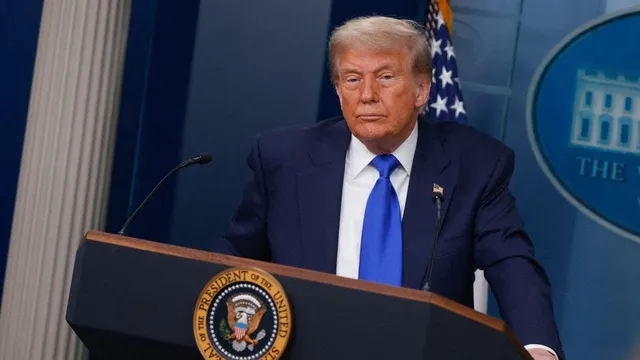
Thom Tillis faces backlash after opposing Trump's big beautiful bill
2025-06-30 09:06- Senator Thom Tillis opposed Trump's 'big beautiful bill' due to concerns over Medicaid cuts.
- The Senate advanced the bill despite opposition from a few Republicans.
- Tillis's criticism of the bill highlights a growing rift within the GOP concerning healthcare funding.
Express your sentiment!
Insights
In late June 2025, U.S. Senator Thom Tillis of North Carolina announced his opposition to President Trump's large spending bill, known as the 'big, beautiful bill,' during a procedural vote in the Senate. Tillis stated that the legislation contained significant cuts to Medicaid that would have dire implications for his state. Following his announcement, Trump indicated he would seek a primary challenger against Tillis, reflecting the growing rift within the Republican Party regarding the legislation. The situation is indicative of broader challenges faced by Republicans as they balance party unity with constituent needs. The Senate Republicans hold a narrow majority, which complicates the passage of Trump's proposal. Despite Tillis’s concerns, the Senate advanced the bill through a key procedural hurdle, necessitating further debate. Lawmakers from both parties have expressed divergence on the effects of the bill, particularly concerning healthcare and social services, placing pressure on Republican lawmakers to align with the President's agenda or risk political fallout at home. Tillis’s criticism resonated with various factions, emphasizing the potential loss of billions in federal funding for North Carolina, including impacts on hospitals and rural healthcare access. Tillis's recent decision to not seek re-election intensified discussions about the future of the GOP in North Carolina, especially in light of his outright denial of support for Trump's plan. His stance illustrates a critical moment for intraparty dynamics as Trump’s influence over Republican legislators faces challenges amid opposing perspectives on key fiscal policies. Senators such as Rand Paul also voted against advancing the same legislation, demonstrating that Tillis was not alone in his dissent among a few party members. As debates continue, the debate surrounding healthcare funding in light of political objectives signifies a pivotal phase for the Republican Party. The controversy raises questions about the party's direction and its capacity to navigate the complexities of policy without alienating significant voter bases essential for the next election cycle, particularly in states heavily dependent on Medicaid services. As pressure mounts from both the White House and their constituents, Republicans like Tillis are caught in a turbulent struggle to advocate for their states while adhering to party loyalty and Trump's often uncompromising stance.
Contexts
The divisions within the Republican Party regarding spending bills have become increasingly pronounced, reflecting a broader ideological struggle that has emerged in recent years. As the party grapples with its identity in the wake of changing voter demographics and shifting political landscapes, debates over fiscal responsibility, government spending, and prioritization of policy initiatives have created tensions among its members. These divisions primarily fall along two lines: traditional conservatives who emphasize fiscal restraint and limited government, and more populist elements that advocate for increased spending on certain initiatives, particularly those that bolster support among their voter bases. This internal conflict has significant implications for the party's unity and electoral prospects as the 2024 elections approach, making the management of spending bills a high-stakes issue for Republican leaders. The traditional conservative faction within the party stresses the importance of reducing the federal deficit and curtailing government expenditures. Influenced by longstanding principles of limited government and fiscal prudence, this group is wary of any spending measures that could exacerbate national debt. They argue that responsible budgeting is essential to maintain economic stability and promote sustainable growth. To this end, they seek cuts to discretionary spending and oppose any new entitlement programs that require significant funding without a clear revenue source. This faction often aligns with the views of the tea party movement, which gained prominence in the late 2000s and has consistently advocated for reduced government intervention in the economy. In contrast, the populist wing of the Republican Party has emerged as a counterbalance, advocating for increased investment in infrastructure, healthcare, and social programs that directly address the needs of their constituents. This segment of the party has gained traction by positioning itself as a champion for working-class voters, who feel neglected by traditional party policies. Although often skeptical of government in general, populists argue that strategic investments can stimulate economic growth and create jobs, especially in regions that have suffered from industrial decline. This perspective has led to intense negotiations within party ranks, as leaders must navigate the demands from both factions to maintain party cohesion. The need for compromise on spending bills underscores the broader challenge the Republican Party faces in balancing these competing ideologies. Leaders are increasingly tasked with finding solutions that can appease both the fiscally conservative base and the populist supporters. As they head into the next election cycle, the ability of the party to present a united front on fiscal issues will be pivotal in shaping its agenda and electoral strategy. Failure to address these divisions could result in weakened support among key voter demographics and endanger their chances of regaining momentum in both congressional and presidential races.